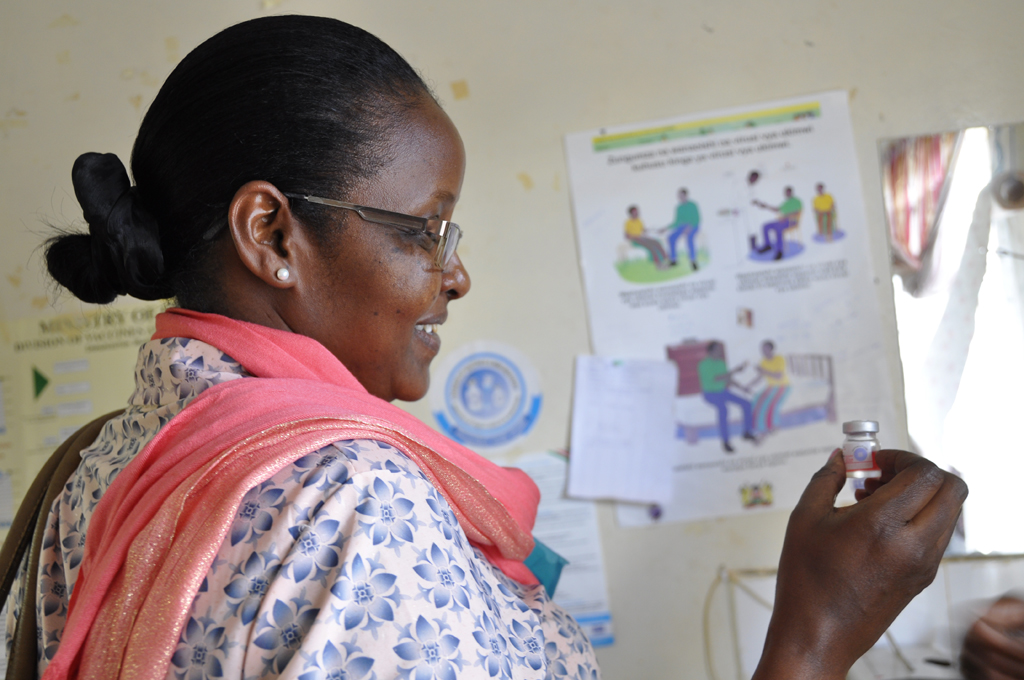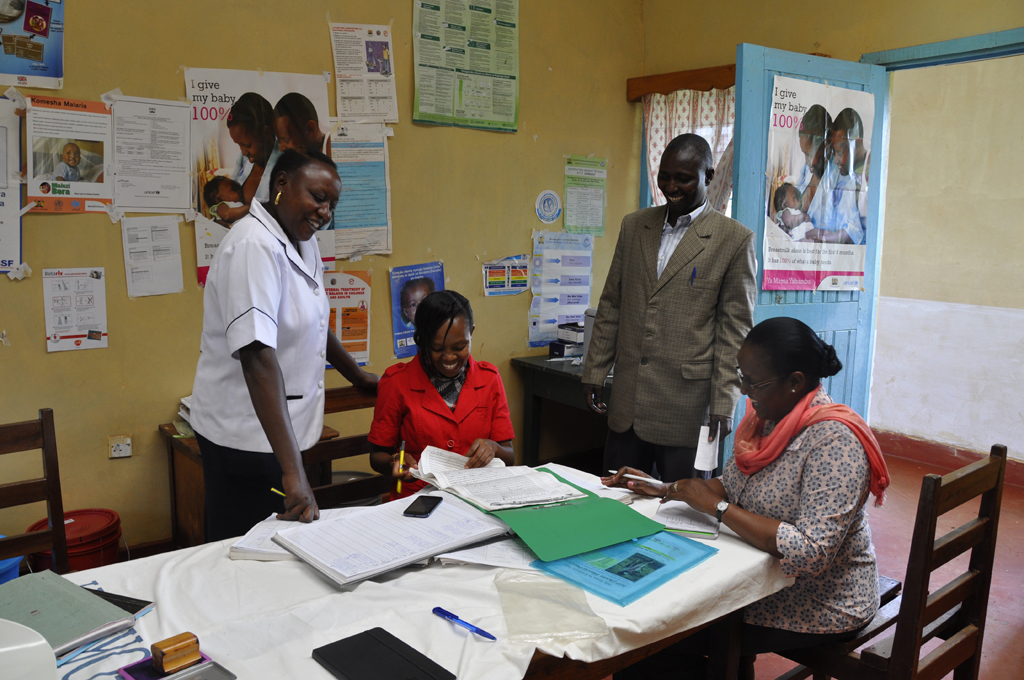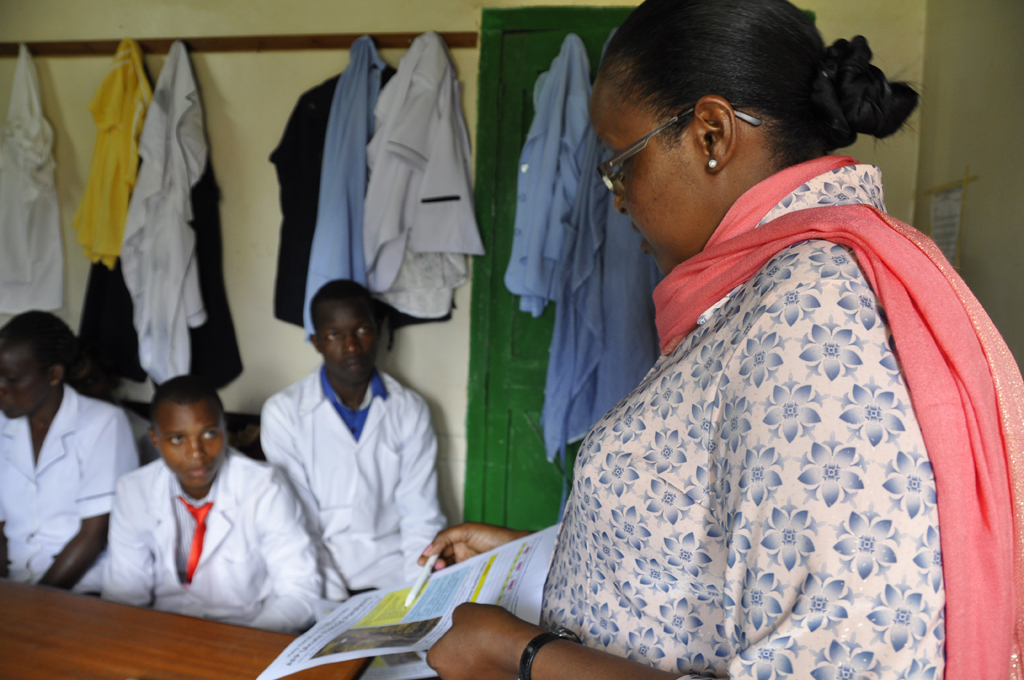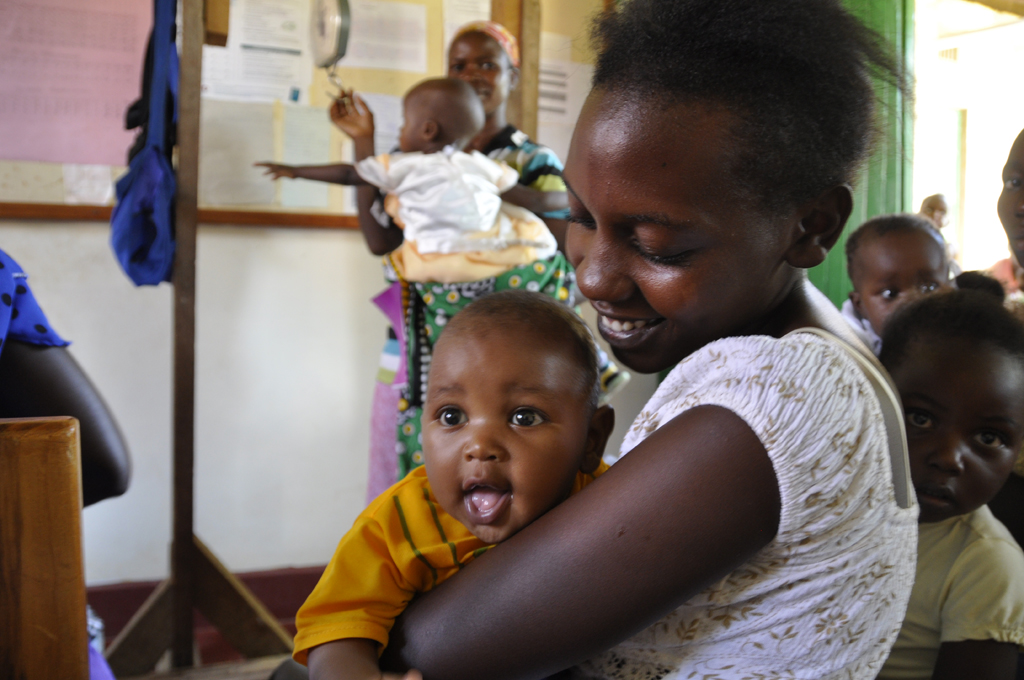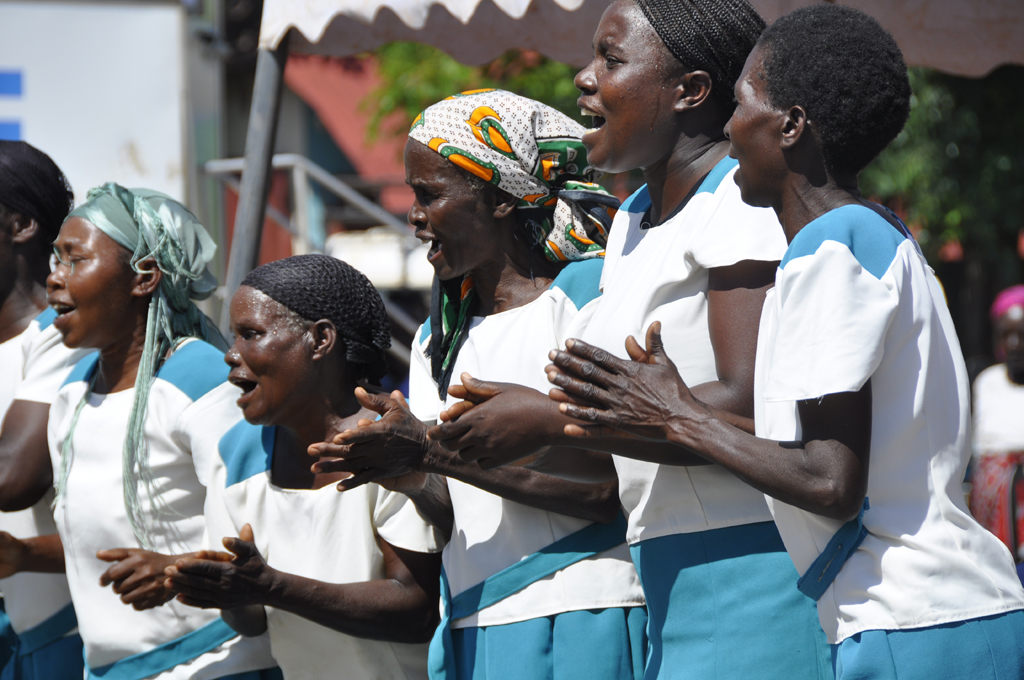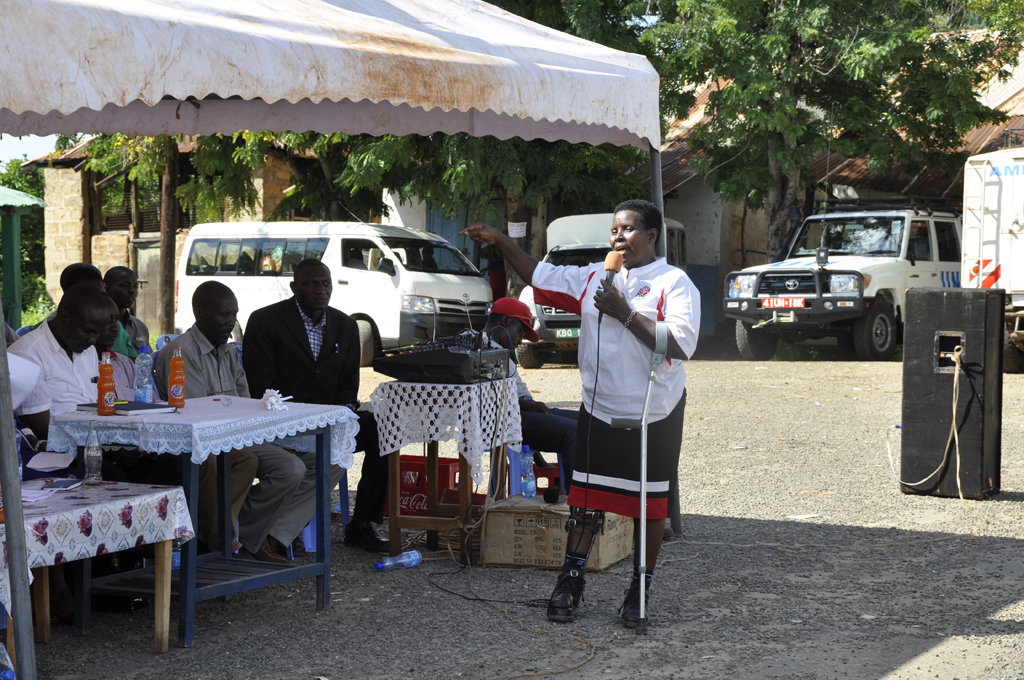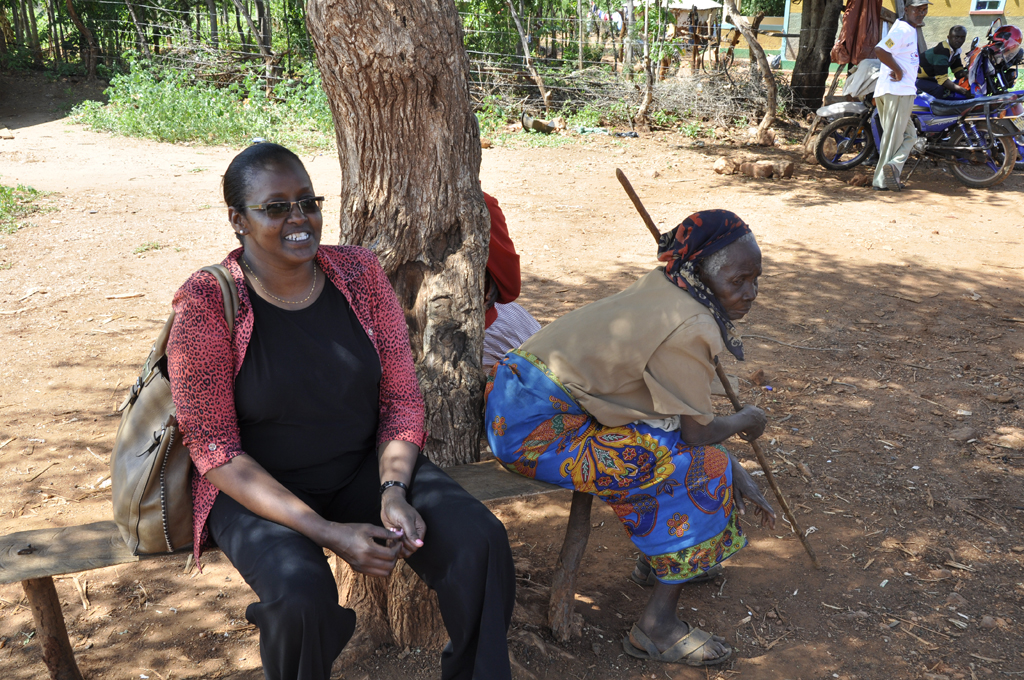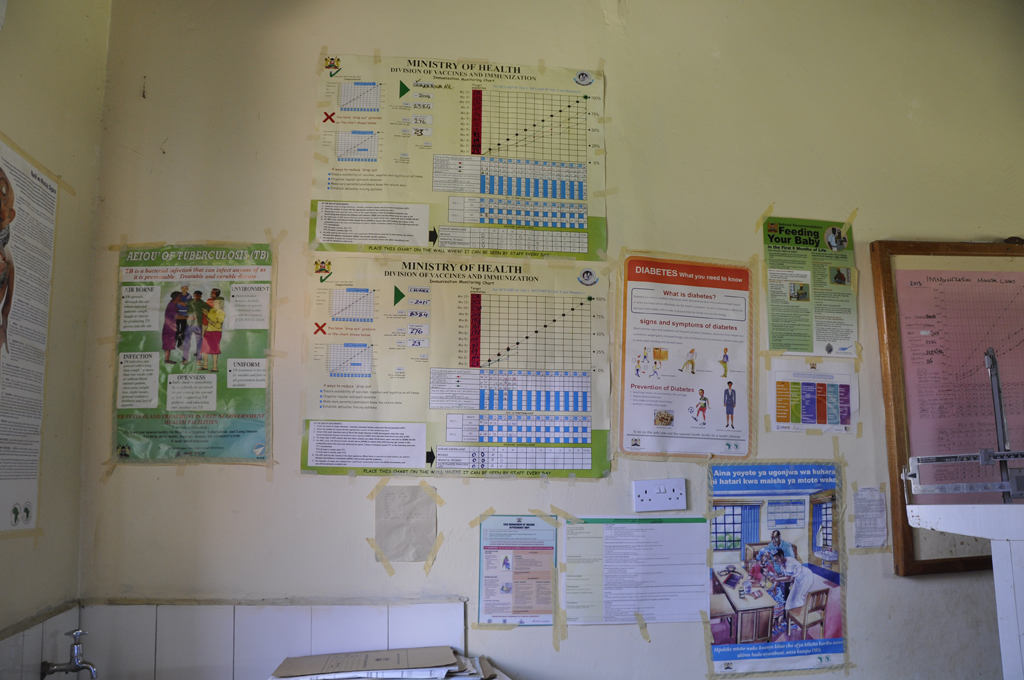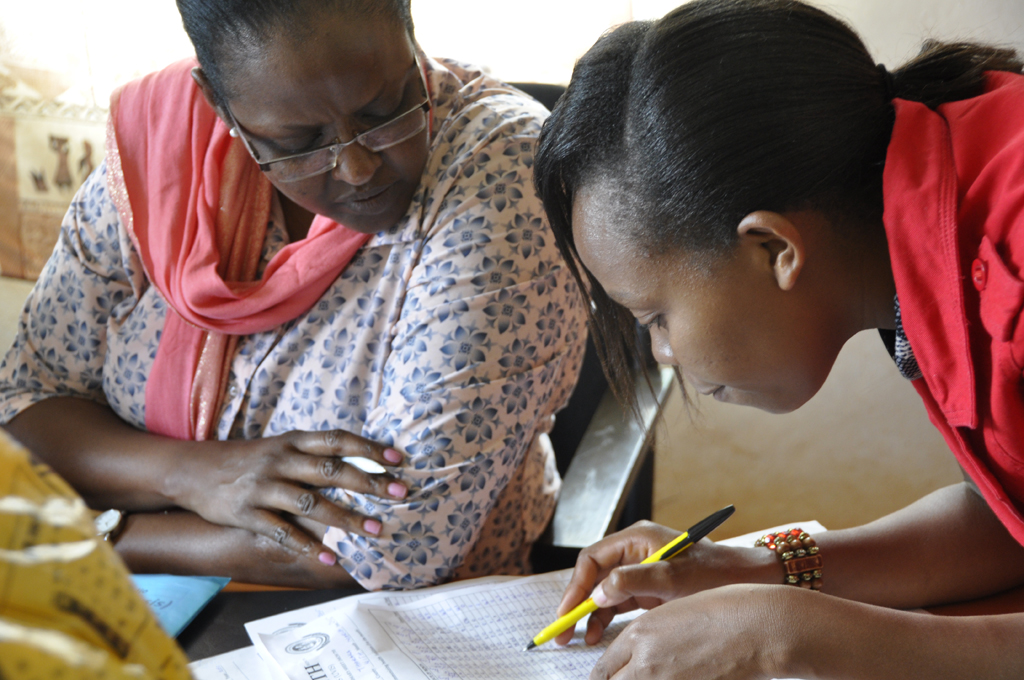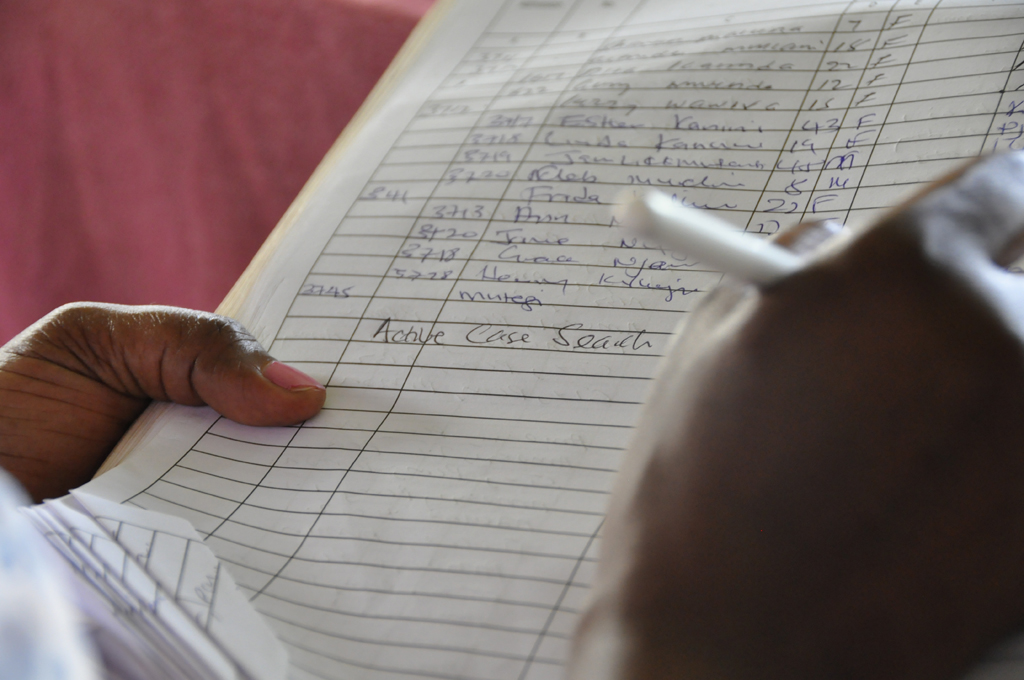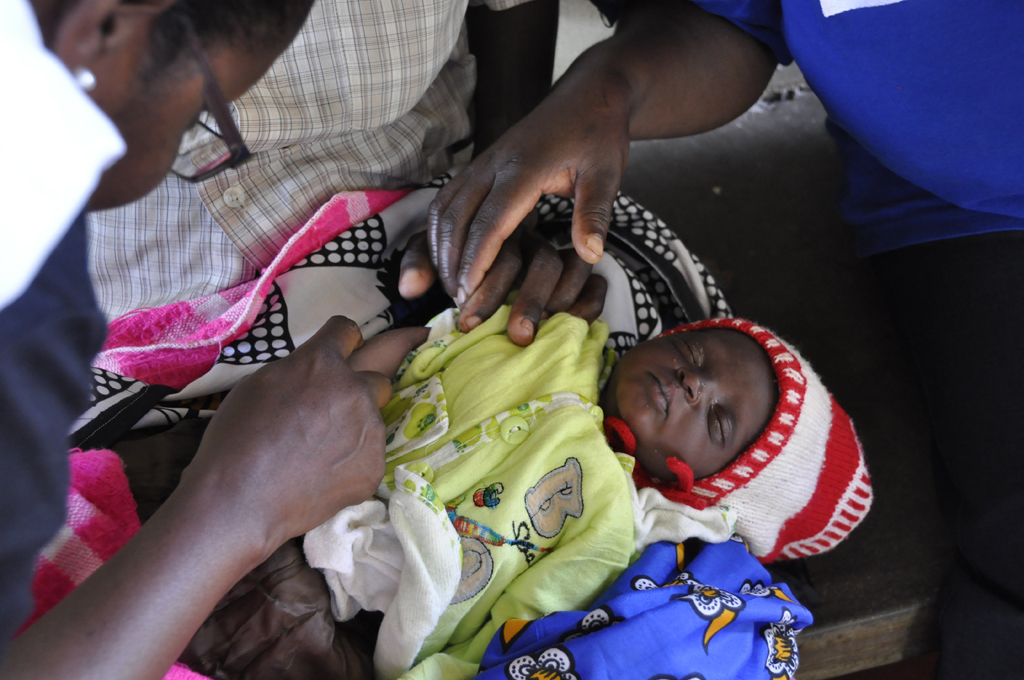Amina Ismail knows that it is not just vaccinating every last child, but also tracing every last poliovirus that will take us over the finishing line of one of the biggest public health achievements of our time: polio eradication. Amina is one of seven surveillance officers who work across Kenya with Ministry of Health officials as well as other partners of the Global Polio Eradication Initiative to ensure that no poliovirus goes unnoticed. Follow Amina’s daily routine through these photographs as she works in Tharaka Nithi County to strengthen surveillance for acute flaccid paralysis (AFP), the outward symptom of polio. As the polio outbreak in the Horn of Africa comes to a close, the work of surveillance officers will is essential to make sure polio does not return unnoticed. In addition to this important task, staff like Amina contribute to surveillance for other diseases and help to strengthen routine immunization, showing that polio eradication can, and does, leave an important legacy.
It is Amina’s ability to engage and motivate the people at the heart of the surveillance system that make her so good at her job. She spends her days working with health workers like Rita Gaceri (left), educating them about the principles of polio surveillance and imparting advice using the expertise she has gathered through her many years as a surveillance officer. If a child is brought to Rita’s clinic with acute flaccid paralysis (AFP) (floppy arms or legs), accompanied by a fever or headache and not caused by a trauma of any kind, then it could be polio. Worldwide, every time a health worker like Rita reports a case of AFP, it is tested to see whether it was caused by the poliovirus.
As well as engaging staff know first-hand the life-long damage that polio can cause, Amina engages new generations of medical students at Chuka district hospital. ‘You are very key, working in the wards. If you miss paralysis here, the child will be sent home and the system will be weaker as a consequence. If Tharaka Nithi isn’t reporting cases, the whole world will turn to look at us because we cannot prove that, if polio landed here today, we would detect it,’ she explains.
'When you work with women, take the opportunity to educate the community by telling them about the symptoms you look for,’ Amina encourages the nurses she meets at health clinics. She knows how important it is to extend the understanding of how to find and identify polio to those outside of health systems such as mothers, teachers or community volunteers to ensure that every case of AFP is reported.
Learning about polio doesn’t only happen in hospitals. By mobilising communities to look for and report the symptoms of AFP, it becomes more likely that we will find polioviruses if they are circulating in any area, no matter how remote. At a community engagement event in Chiakariga, Amina hears a group of women sing to crowds of villagers at the weekly market about the importance of vaccinations to prevent dangerous and life-threatening diseases like polio, and how to spot cases of paralysis.
Speaking out against polio
Ruth, the representative for disabled people to the County Assembly for Tharaka Nithi, contracted polio when she was eight years old. Despite the leg braces she has to wear to stand, she gets up to dance as the women sing about the dangers of polio. ‘It is not a death sentence to be paralysed, but my parents and the government have had to support me to do everything,’ Ruth tells Amina. ‘When parents are engaged with health clinics, when they trust them, then diseases like polio go away fast. I advocate with parents to explain to them that disabilities such as mine can be avoided.'
'We need to engage trusted leaders in the community in order to have cases reported to our surveillance systems,’ explains Amina as she waits in line to visit Mougao, a traditional healer in Tharaka south. ‘Everyone has their own beliefs, and we value the trust people place in you’, she explains to him. ‘Everyone has their own role to play,’ agrees Mougao. ‘When I see a child with one of these diseases, I will send them to the health facility. My heart is open to you, and to the hospitals.'
Monitoring other vaccines
Visits to health centres are an opportunity to check on the accuracy of the numbers of children receiving lifesaving vaccines being reported to the county and national level. But Amina also takes the opportunity to explain to health workers the role that this data should be playing for them, as they plan how to reach all the children in their area. Monitoring charts on the walls of clinics record the number of babies needing and receiving vaccines each week. If parents don’t return for the crucial follow up doses of each vaccine, this is reflected in the chart, enabling health workers to know whether their communities are becoming vulnerable to vaccine preventable diseases.
Amina works with Jennifer Mbithe Nduva, a Data Collection Officer in Tharaka Nithi. As she visits health clinics, Jennifer pours over case registers, weekly reports and vaccination charts to make sure everything is accurate and consistent. She looks for symptoms that could have been cases of polio, measles or neonatal tetanus that were not identified by health workers, and explains to the surveillance focal point at each clinic that this level of vigilance is absolutely central to polio eradication efforts.
In every clinic, a nurse or doctor plays the role of surveillance focal point to make sure that all the health workers there know what symptoms would give away a case of polio, measles or neonatal tetanus. As well as knowing what to look for, every health worker must know who to alert if they have any suspicions. Amina explains that each focal point should do ‘active case searches’ every week: this means checking through the patient case registers in case any symptoms that could have been one of these diseases have been missed by doctors or nurses.
'I enjoy my job, but sometimes it requires you to go beyond your own self to make sure you achieve the objective. But with the support of everyone around me I am able to achieve what I need to with not much difficulty,’ says Amina. ‘As time goes on I am getting more energy, because once we have eradicated polio I will have achieved something that I will be able to tell my grandchildren; that I was key in protecting children by eradicating a very serious disease in this world.'
